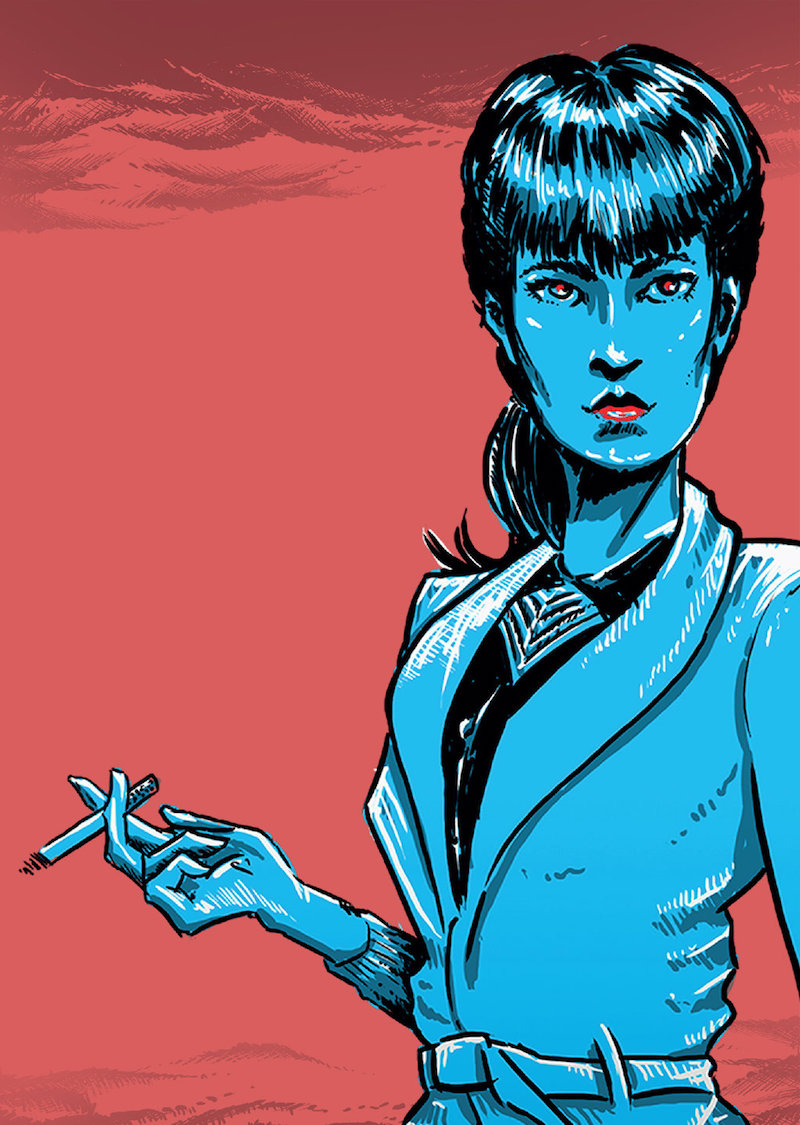
Interpretation of Rachael from Blade Runner by nck-dst-zsk.
The reason I get to do this — futurist punditry — is that the world is changing. That’s why you’re paying attention. That’s why 100k+ people subscribe to /r/Cyberpunk and /r/DarkFuturology, and why The Future is Now raised more than five times its goal on Kickstarter.
So why is the world changing? The reason is the internet. Technology analyst Ben Thompson wrote in a 2013 essay called “Friction”:
“Count me with those who believe the Internet is on par with the industrial revolution, the full impact of which stretched over centuries. And it wasn’t all good. Like today, the industrial revolution included a period of time that saw many lose their jobs and a massive surge in inequality. It also lifted millions of others out of sustenance farming. […] Modern democracies sprouted from the industrial revolution, and so did fascism and communism. The quality of life of millions and millions was unimaginably improved, and millions and millions died in two unimaginably terrible wars.”
We turn to fiction to make sense of the ongoing upheaval because authors’ imaginations, freed from the constraints of current reality, can point to landmarks ahead that are otherwise hidden from mundane minds. Fiction serves as a telescope into tomorrow, suggesting the possibilities that will be software plans and manufacturing specs after a few more decades. Fifty years can sound like a long time, but remember how quickly the techno-dystopia crept up on us.
Seminal cyberpunk works like Neuromancer and Blade Runner posited a world of antiheroes struggling against large opaque forces — the power on both sides coming from the manipulability of information in a networked world. And the domain of information was not limited to keyboards and screens: consider Rachael’s identity in Blade Runner, and the Tessier-Ashpool clan’s manipulation of physical space in Neuromancer.
Where do we go from here? Post-cyberpunk is a disappointing genre; it’s not cynical enough. Biopunk / genepunk excites me much more. To be honest, I don’t see recent extensions of the “high tech, low life” theme as refutations of cyberpunk, or even separate genres — rather they are continuations and sub-genres. Maybe I am, ironically, clinging to the past…


gaikokumaniakku says:
When you say “post-cyberpunk” disappoints you, what titles are you referring to?
90% of post-cyberpunk fiction is crap because 90% of sci-fi is crap, because 90% of everything is crap.
You know one of the books that I hate the most?
https://en.wikipedia.org/wiki/The_Windup_Girl
I hate that book. I hate everything associated with that book.
You can call it postcyberpunk or biopunk or whatever. I say it’s crap and I say to hell with it.
July 13, 2016 — 8:52 am
Sonya Mann says:
I suspect we have different taste, then, since I love that book :3
July 13, 2016 — 9:42 am